Choose A. Armstrong Roofing
- 49 Years of Trusted Roofing Expertise Across the North-East
- Enjoy Year-Round Competitive Pricing: Get 40% Off New Roofs This Winter!
- NFRC + CompetentRoofer Certified
For a free quote, call us or simply fill in the form below!
Choose A. Armstrong Roofing
- 49 Years of Trusted Roofing Expertise Across the North-East
- Enjoy Year-Round Competitive Pricing: Get 40% Off New Roofs This Winter!
- NFRC + CompetentRoofer Certified
For a free quote, call us or simply fill in the form below!
Tiles: What to Choose for Your Roof
Choosing new tiles for your roof isn't easy: cost, weather conditions, appearance, and durability are all factors to consider.
In this post, we'll help you make the right decision for your home.
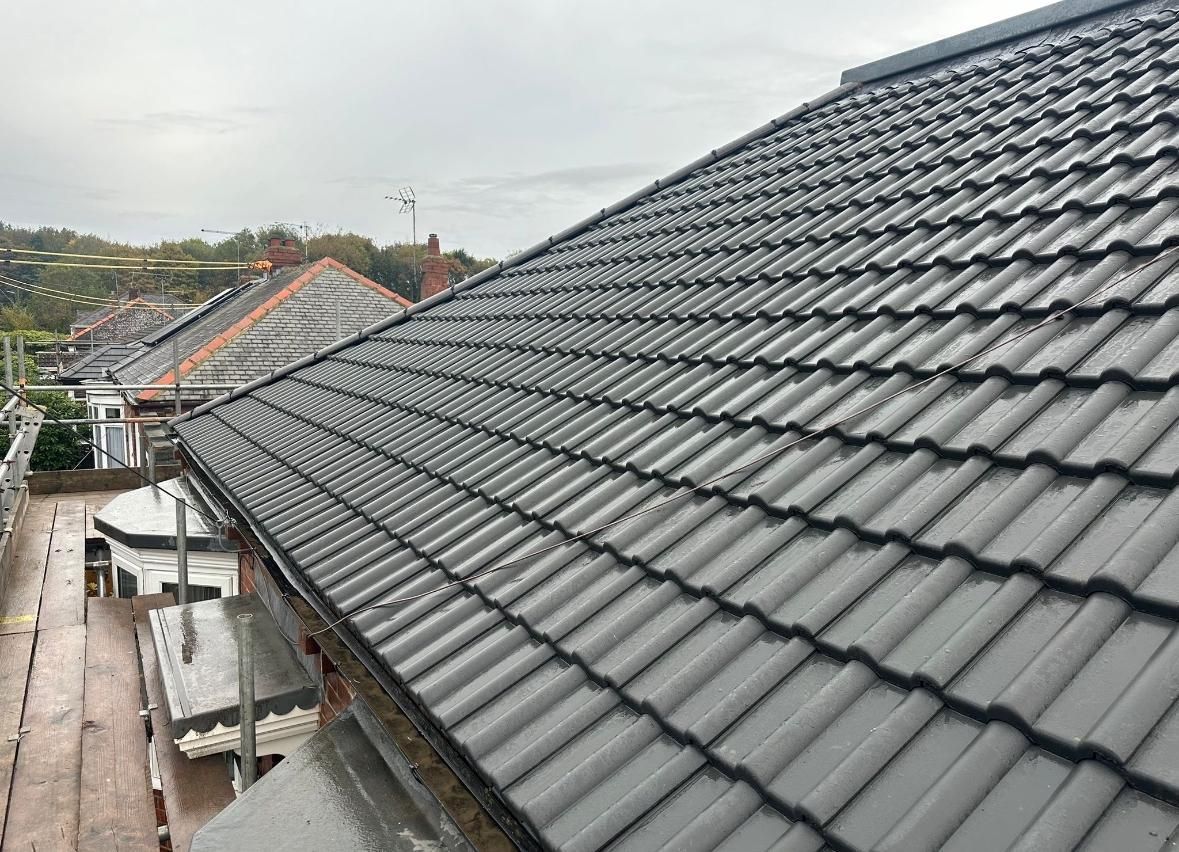
One of the most significant decisions you'll make as a homeowner is selecting the tiles for your roof.
A high-quality roof will improve a home's energy efficiency and protect it from harsh weather, providing you peace of mind while saving you money.
The decision isn’t always straightforward: you may have a tight budget or a weaker roof structure - these requirements can limit your choices.
In this post we'll go over the advantages and disadvantages of four popular varieties of roofing tiles that we use in our services, taking into account essential factors like cost and durability.
SALE: A. Armstrong Roofing are currently offering a 40% limited time sale on new roofs this winter. Get in touch with our team over the phone or by submitting a form message.
Concrete Tiling
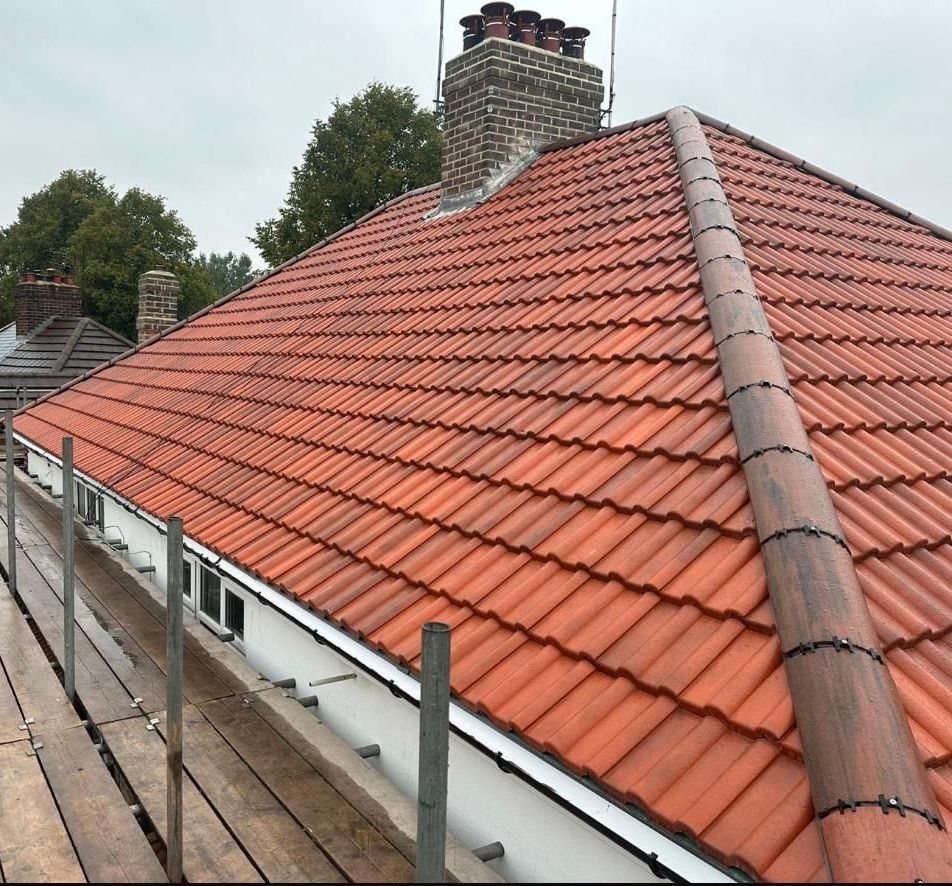
Pros:
- Long lifespan of 50 - 60 years
- Wide range of styles
- Cost-effective
Cons:
- Temporary colour fading
- Moss issues
- Weight
Cost: (excluding installation costs) £7.40 - £23.77 per m² [Source: roofingmegastore.co.uk]
Concrete tiles are the most common roofing option in the UK, thanks to their balance of cost, durability, and good looks. When installed correctly, concrete tiles can have a lifespan of 50 years or more, dependent on the local climate.
Due to the versatility of concrete, concrete tiles are commonly available in a variety of styles such as the double roman tile, modern tiles and pantile tiles. With prices as low as £7 per m², concrete tiles are budget friendly and cost effective.
Aesthetically, concrete tiles are more prone to discolouration than slate or clay tiles. A common misconception is that this discolouration is permanent. According to tile manufacturers Marley, the discoloration is temporary due to a process called efflorescence (natural lime within the concrete reacting to air and rainwater), and the tiles return to a normal colour within a few months.
You can read more about efflorescence here: https://www.marley.co.uk/blog/what-is-efflorescence-and-is-it-permanent
Moss can grow quite easily on concrete tiles due to their shape, so it’s important to routinely check the roof for moss growth. Failure to do so can contribute to leaks and blockages.
Concrete tiles are also considerably heavier than the majority of alternatives, so consider whether the structure of your house can bear the weight of a concrete tiled roof.
Clay Tiling
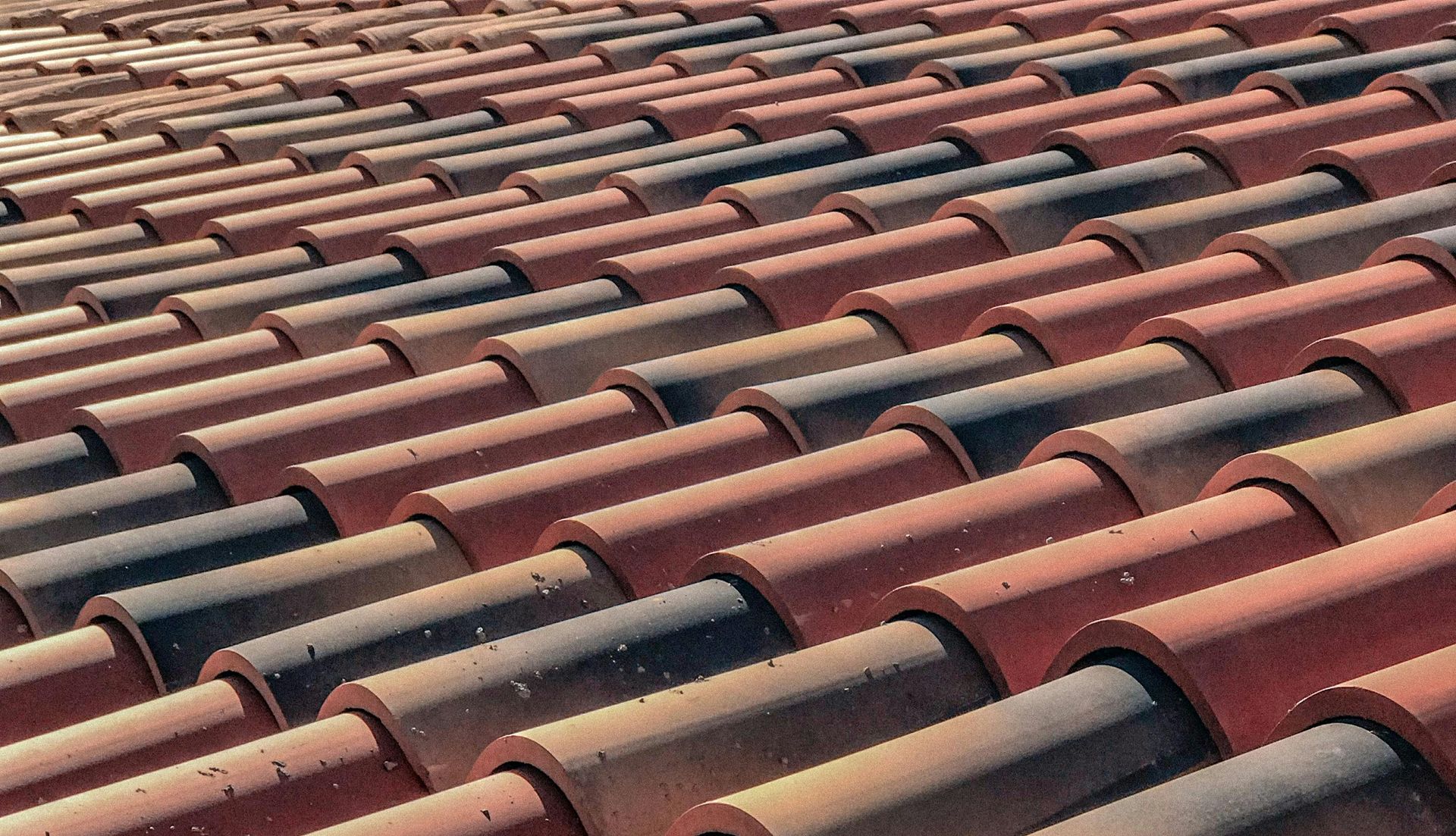
Pros:
- Lifespan of 50 - 60 years
- Low Absorption rate
- Aesthetically pleasing
Cons:
- Weight
- Cost
- Tricky to install
Cost: (excluding installation costs) £27.95 - £36.72 per m² [Source: roofingmegastore.co.uk]
Clay tiles, like concrete tiles, will likely last 50-60 years, making them a long-term solution for homeowners. With an average water absorption rate of 6% (half that of concrete tiles at 13%), clay tiles will take in less water and can remain lightweight for longer.
Historically popular for improving the exterior aesthetics of a house, clay tiles are widely available in a variety of colours such as black, grey, terracotta and red.
Whilst lighter than concrete tiles, clay tiles are still a heavy choice. It's vital to check that your home is suitable for heavier tiles.
Per square metre, clay tiles are more expensive than concrete tiles, primarily due to the longer manufacturing times with handmade variants. The cost will vary depending whether the tiles are handmade or machine made.
If you opt for machine made tiles, the price will be lower - on average the price of machine-manufactured clay tiles are only 10% more expensive than concrete tiles.
As handmade clay tiles aren't precisely the same size during the manufacturing phase they need to be carefully cut and measured by roofers before installation onto a roof. Choosing high-quality roofing contractors will ensure a quality
finish!
Natural Slate
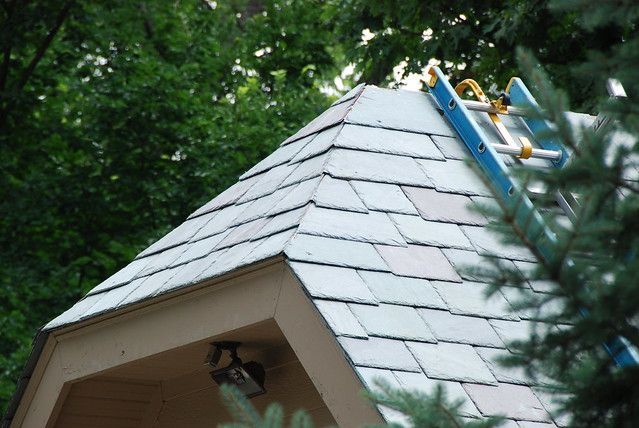
Pros:
- Extremely durable - 100 years +
- Natural appearance
- Environmentally friendly
Cons:
- Luxury option
- Tricky installation
- Heavy
Cost: (excluding installation costs) £39.69 per m² -
[Source: roofingmegastore.co.uk]
Slate tiles have been popular for centuries due to their amazing durability. Slate tiles are naturally resistant to leaking, frost damage and have an extremely low absorption rate of 0.4% percent - [Source:
slateplate.com].
When installed by professionals, slate roofing tiles can last over a century due to its natural resistance to extreme temperatures, moisture and fire. Aesthetically, slate tiles age well in the British climate thanks to their durability. Quality slate will turn darker over time thanks to its high carbonate content.
Slate tiles aren’t the best choice for everyone though - they’re very heavy, so they’ll need strong structural support and won't be suitable for every property. Installing slate on a roof requires specific equipment and reinforcement to the roof deck. As a result, the installation costs are more expensive than concrete or clay tiles.
Also, the good looks and durability come at a higher price point. Compared to other options, slate tiles are costly and may not be ideal for larger projects or those with a strict budget.
Fibre Cement Slate
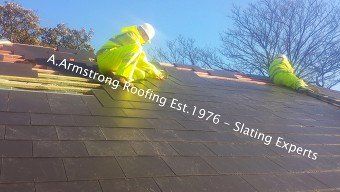
Pros:
- Budget friendly slate
- Lightweight
- Environmentally friendly
Cons:
- Lower Lifespan than natural slate
Cost: (excluding installation costs) £18 per m² - [Source: ssqgroup.com]
If the price of natural slate is putting you off, we recommend fiber cement slate. At just half the average price of natural slate with the same aesthetic appeal, this synthetic option is ideal for those with a stricter budget.
Fibre cement slate is much lighter than natural slate due to the synthetic makeup of the tile, making it suitable for buildings with lower weight bearing potential. Whilst lighter and cheaper, fibre-cement tiles still enjoy strong climate and water resistance.
Fibre-cement tiles also have 100% recyclable capability, reducing the environmental impact during the manufacturing and installation stages.
However, fibre cement slating isn’t as durable as natural slating, with manufacturing guarantees of a 30 - 50 year lifespan.
Final Verdict
Most Budget Friendly: Concrete Tiling
Most Customizable: Clay Tiling
Most Aesthetic: Natural Slating
Best for Weaker Buildings: Fibre Cement Slating
About Us
A. Armstrong Roofing are expert roofing contractors based in North-East England. Our team can provide roof repairs, roof replacements and flat roofing services at an unbeatable price (we’re currently offering a 40% winter discount on new roofs!).
With over 48 years of experience and a 9.8 rating on
Checkatrade (300+ reviews), we pride ourselves on being the best.






